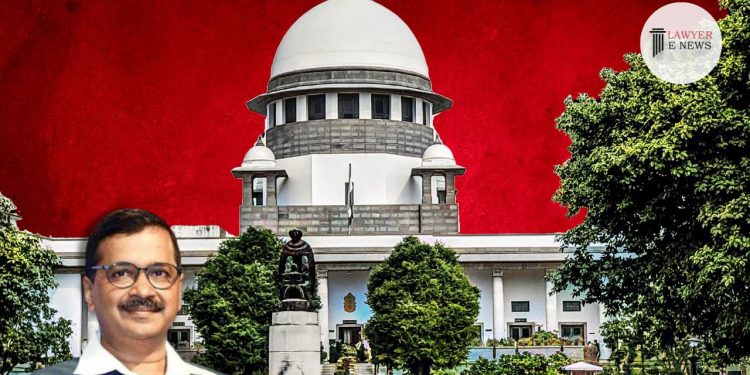Ignoring the Peculiar Circumstances of the Appellant Would Be Inequitable: Supreme Court Grants Interim Bail to Arvind Kejriwal Amid General Elections

In a notable judgment today, the Supreme Court of India granted interim bail to Delhi Chief Minister Arvind Kejriwal, acknowledging the unique context of his political role during the ongoing Lok Sabha elections. The apex court, presided over by Justices Sanjiv Khanna and Dipankar Datta, ruled that overlooking the “peculiar circumstances” surrounding Kejriwal would be “inequitable and wrong.”
Legal Background and Facts of the Case: Arvind Kejriwal was arrested on March 21, 2024, under allegations involving the Prevention of Money Laundering Act, the Indian Penal Code, and the Prevention of Corruption Act. This arrest followed the registration of several charges by the Directorate of Enforcement and subsequent upholding by lower courts. Kejriwal’s legal team appealed to the Supreme Court challenging the validity of his arrest and seeking interim relief citing his pivotal role in the current general elections.
Court’s Analysis on Legal Points and Issues: The Supreme Court meticulously examined the provisions related to the grant of interim bail, citing several precedents affirming the judiciary’s authority to consider bail in extraordinary circumstances. The justices highlighted the ongoing general elections as a significant democratic process, rejecting the prosecution’s argument against preferential treatment for politicians. The court emphasized that special circumstances require special considerations, which in this case, justified the grant of interim bail.
Examination of Legal Provisions: Justice Khanna referred to the Mukesh Kishanpuria case, which supports the high court’s power to grant interim bail as part of constitutional rights under Article 21.
Peculiar Circumstances and Judicial Precedents: The court underscored previous rulings where interim releases were justified based on the peculiarities of each case, demonstrating the judiciary’s role in balancing legal standards with situational fairness.
Final Decision on Interim Bail: Kejriwal was granted bail until June 1, 2024, with strict conditions, including restrictions on accessing official premises and documents, emphasizing that this should not influence the ongoing legal proceedings regarding his arrest.
Case Title and Date of Decision: The case, titled “Arvind Kejriwal Versus Directorate of Enforcement,” was decided on May 10, 2024, marking a significant interim decision in the landscape of Indian legal proceedings involving high-profile political figures. The Supreme Court’s judgment not only addressed the immediate legalities of Kejriwal’s bail but also set a precedent on how judicial discretion can be applied in cases involving elected officials during critical democratic events.
Date of Decision: 10th May 2024
ARVIND KEJRIWAL VS DIRECTORATE OF ENFORCEMENT






